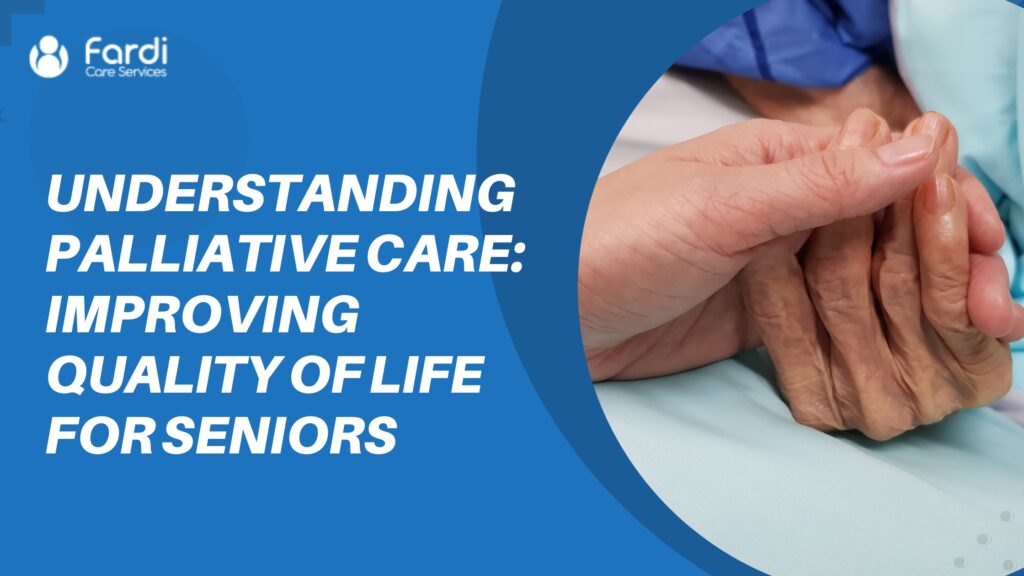Palliative care is a specialized approach to healthcare that focuses on improving the quality of life for individuals facing serious illness, including seniors in Minneapolis. It prioritizes pain management, symptom relief, emotional support, and holistic care to enhance overall well-being. In this blog, we will explore the importance of palliative care for seniors, how it works, and the ways it can significantly improve their quality of life.
What Is Palliative Care?
Palliative care is a multidisciplinary approach to care that aims to address the physical, emotional, social, and spiritual needs of individuals with serious illnesses. It is not limited to end-of-life care and can be provided alongside curative treatments. Key aspects of palliative care include:
- Pain Management: Palliative care focuses on effectively managing pain and discomfort associated with the illness or treatment.
- Symptom Relief: It addresses the various symptoms and side effects of the illness, such as fatigue, shortness of breath, nausea, and insomnia.
- Emotional Support: Palliative care provides emotional and psychological support to patients and their families, helping them cope with the challenges of serious illness.
- Communication: Open and honest communication between healthcare providers, patients, and families is a cornerstone of palliative care. It helps in setting realistic goals and expectations for care.
- Holistic Approach: Palliative care takes into account the individual’s overall well-being, including their spiritual and cultural beliefs, to provide comprehensive care.
Palliative Care for Seniors
Seniors often face complex health issues, chronic conditions, and serious illnesses that can impact their quality of life. Palliative care is especially beneficial for seniors because it addresses the unique needs and challenges they may encounter, such as:
1. Enhanced Pain Management
Seniors are more likely to experience chronic pain due to age-related conditions. Palliative care focuses on managing and alleviating pain, allowing seniors to enjoy a better quality of life.
2. Improved Symptom Control
Many seniors face multiple symptoms associated with their illnesses or treatments. Palliative care provides effective strategies to control and reduce these symptoms, such as fatigue, breathlessness, and nausea.
3. Emotional and Psychological Support
Serious illnesses can take a toll on seniors’ emotional well-being. Palliative care offers counseling and emotional support to help seniors and their families cope with the emotional challenges they may encounter.
4. Increased Quality of Life
By addressing pain, symptoms, and emotional distress, palliative care contributes to an overall improved quality of life for seniors. It allows them to continue engaging in activities they enjoy and spend meaningful time with loved ones.
5. Support for Families
Palliative care extends its support to the families of seniors, helping them navigate the complexities of caregiving and providing guidance on how to best support their loved ones.
How Palliative Care Works
Palliative care is typically provided by a team of healthcare professionals, which may include:
- Physicians
- Nurses
- Social workers
- Chaplains or spiritual counselors
- Psychologists or counselors
The palliative care team collaborates to create a customized care plan tailored to the senior’s specific needs and goals. The care plan may include:
- Medication management to control symptoms and pain.
- Physical therapy and rehabilitation to improve mobility and comfort.
- Emotional and psychological support through counseling or support groups.
- Assistance with making difficult decisions about medical treatments.
- End-of-life planning and support for seniors and their families.
Palliative care can be provided in various settings, including hospitals, senior care facilities, and in the comfort of the senior’s own home through home-based palliative care services.
Benefits of Palliative Care
Palliative care offers a wide range of benefits for seniors, including:
1. Improved Comfort
By addressing pain and symptoms, palliative care ensures that seniors are more comfortable and experience less distress.
2. Better Quality of Life
Seniors receiving palliative care often report a higher quality of life, with improved physical and emotional well-being.
3. Enhanced Communication
Palliative care encourages open and honest communication between seniors, families, and healthcare providers, facilitating shared decision-making.
4. Reduced Hospitalizations
Seniors under palliative care are less likely to be hospitalized, as their symptoms and conditions are effectively managed in their preferred setting.
5. Emotional Support
The emotional support provided by palliative care can significantly reduce stress, anxiety, and depression, allowing seniors to enjoy a more positive outlook.
Accessing Palliative Care in Minneapolis
Minneapolis offers a range of resources and healthcare providers specializing in palliative care for seniors. Here are some steps to access palliative care in the city:
1. Talk to Your Healthcare Provider
Start by discussing palliative care with your primary care physician or specialist. They can provide referrals and guidance on accessing palliative care services.
2. Contact Palliative Care Programs
Minneapolis has several palliative care programs and hospice organizations that offer services to seniors. Contact these programs directly to inquire about their services and eligibility criteria.
3. Consult with Senior Care Facilities
If you or your loved one resides in a senior care facility, inquire about the availability of palliative care services within the facility. Many senior care communities have specialized palliative care programs.
4. Seek Guidance from Social Workers
Social workers can be valuable resources in connecting seniors and their families with palliative care services. They can provide information, referrals, and emotional support.
Conclusion
In conclusion, palliative care plays a crucial role in improving the quality of life for seniors facing serious illnesses or complex health conditions in Minneapolis. It focuses on pain management, symptom relief, emotional support, and holistic care to address the unique needs of seniors and their families. Palliative care allows seniors to live with comfort, dignity, and a higher quality of life during challenging times.
Seniors and their families should not hesitate to explore palliative care options available in Minneapolis to ensure that their loved ones receive the comprehensive care and support they deserve.


